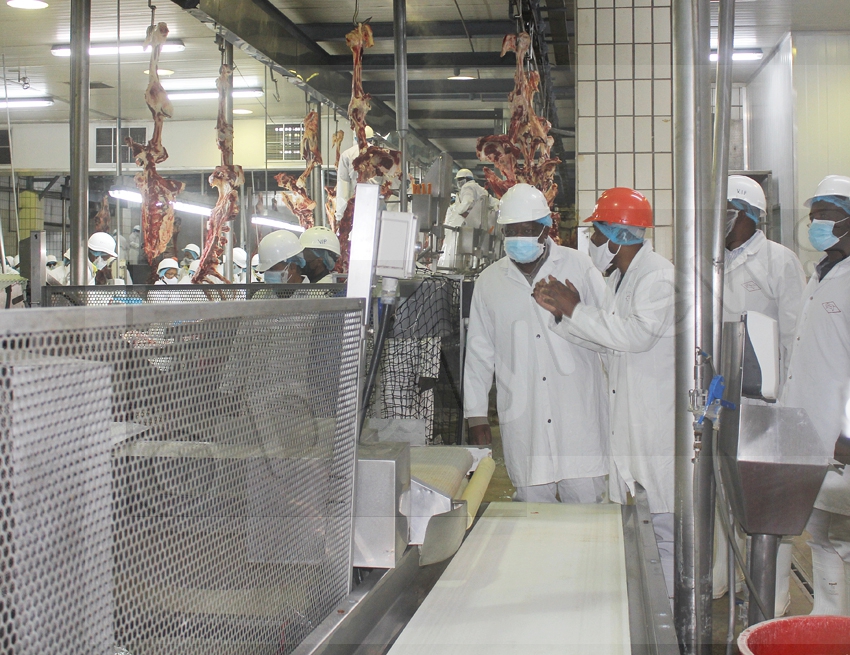Controlled Investigations Bill gets clearance
26 Jan 2022
Parliament on Tuesday approved the Criminal Procedure and Evidence (Controlled Investigations) Bill of 2022 to be debated as a matter of urgency.
A Bill has to be published in Government Gazette 30 days before presentation to Parliament, hence the minister’s bringing it on urgency for legislators to approve that it be debated.
The Bill seeks to enable law enforcement agencies to use undercover operations to intercept communications, access computer systems and use controlled devices in undertaking investigations of money laundering and associated crimes. When asking to allow the Bill to be debated as a matter of urgency, Minister Mmusi said there was need to have a law that could plug legal and security gaps relating to issues of money laundering and financing of terrorism.
These gaps, he said flouted the Financial Action Task Force (FATF) recommendations. “Botswana has been found to be not fully compliant with Recommendation 31 of the FATF Standards,” he said. He said Botswana’s laws were found wanting in terms of enabling law enforcement agencies to use undercover operations; intercept communications; access computer systems and use controlled delivery in undertaking money laundering investigations and associated crimes. Additionally, the National Anti-Money Laundering and Counter Terrorism Financing (AML/CFT) Strategy was developed to have in place a national response to money laundering risks as well as terrorism financing threats.
Among the action items in the National Strategy, Mr Mmusi said, was a requirement to enact a law that catered for a wide range of investigative techniques including covert law enforcement techniques and interception of communication to address the gaps relating to the FATF’s Recommendation 31. Additionally, Mr Mmusi said Botswana had made a commitment to address the recommendation by enacting necessary laws.
Mr Mmusi warned that failure to do so would affect Botswana’S FATF rating and could push the country back into the organisation’s grey list. Mr Mmusi said Botswana was scheduled to undergo a Follow Up Assessment, where an application for an upgrading of effectiveness rating would be made. “Accordingly, enacting the Criminal Procedure and Evidence (Controlled Investigations) on an urgent basis, will assist the country to generate the required data demonstrating effectiveness in the four immediate outcomes referred to above.
It is therefore necessary and urgent for the Criminal Procedure and Evidence (Controlled Investigations) Bill No. 1 of 2022 to be considered,” he said.
Minister Mmusi accordingly moved that bill proceed as a matter of urgency.
Debating the Bill, Leader of the House and Vice President, Mr Slumber Tsogwane stressed that the Bill ought to be presented on an urgent basis given its positive intention and must be expedited to meet the FATF evaluation deadline.
“The bill must go through, six months before the deadline of September 2022 and therefore the urgency is justified,” he said.
Mr Tsogwane said currently judicial officers were not empowered to issue any order authorising law enforcement agencies to intercept communications of suspected criminals in high profile cases that could tarnish the image of the country, affect the economy as well as the livelihoods of individual citizens.
Mahalapye East Member of Parliament, Mr Yandani Boko was also of the view that the proposed amendment to the legislation would be beneficial as it would not only empower law enforcement agencies but would ensure that the country was at par with international standards on financial regulations and therefore countering financial terrorism.
However, Mr Boko was concerned that presenting the Bill on urgency would not serve any good and it was likely to miss pertinent elements.
He said a Bill must undergo proper consultation channels for all concerned parties, including the public to have an input. Nkange legislator, Dr Never Tshabang was equally concerned over the decision to table the proposed Bill on urgency Dr Tshabang said even though the minister had said the urgency was aimed at complying with the set time frame, the FATF had long identified the gas that needed to be closed, and government had had ample time to consult accordingly. As such, he said, the urgency was not justified. .e argued it was important to allow the proposed bill time, so that consultations could be done accordingly to answer all concerns.
Dr Tshabang said he was not comfortable with passing the Bill urgently as its merits were bound to be questionable. Notwithstanding, he said if it enough consultation was done, the bill could be an answer to a long-standing concern by some individuals that the Directorate on Intelligence and Security Services (DISS) was illegally tapping their phones to monitor their communication Francistown South MP, Mr Wynter Mmolotsi said it was hard to accept the bill on urgency as consultation was being compromised.
He said the bill had far reaching implications and therefore, there was need for adequate consultation. MP Mmolotsi said he was suspicious that the bill was being brought on urgent basis to be used by government to settle personal scores.
Further, he said, it was likely to be used to divide the people. Nonetheless, he said besides rushing it, the spirit of the bill was acceptable.
While he argued the urgency sought by the minister was not justified MP for Serowe South, Mr Lesedi Leepetswe concurred the bill was necessary. “Yes, it is true that the bill will do good, but it was necessary to consult accordingly before moving forward,” he said. The Bill has now moved for Second Reading where the MPs will either approve it or reject it. BOPA
Source : BOPA
Author : Moshe Galeragwe
Location : GABORONE
Event : Emergency Parliament
Date : 26 Jan 2022



